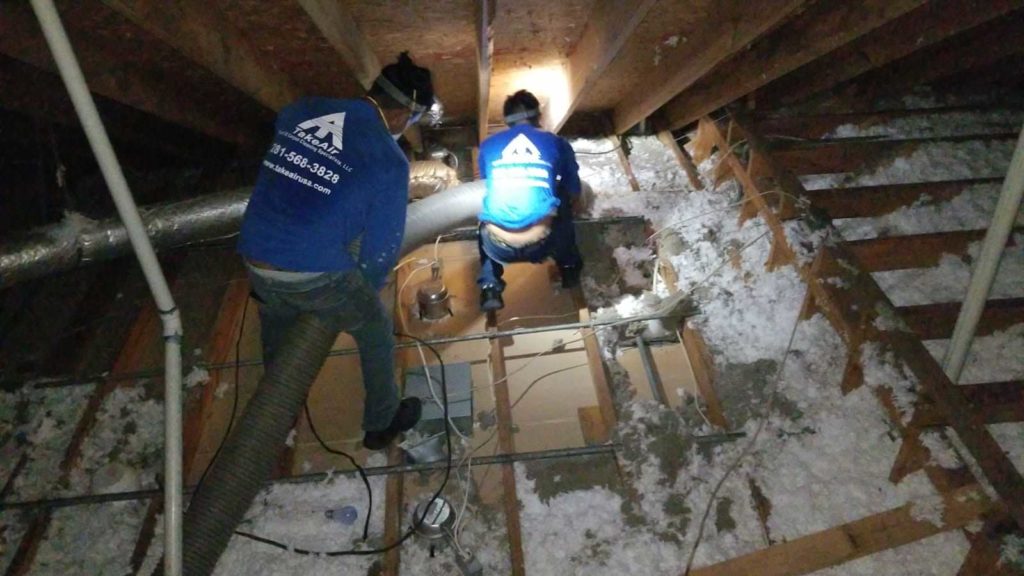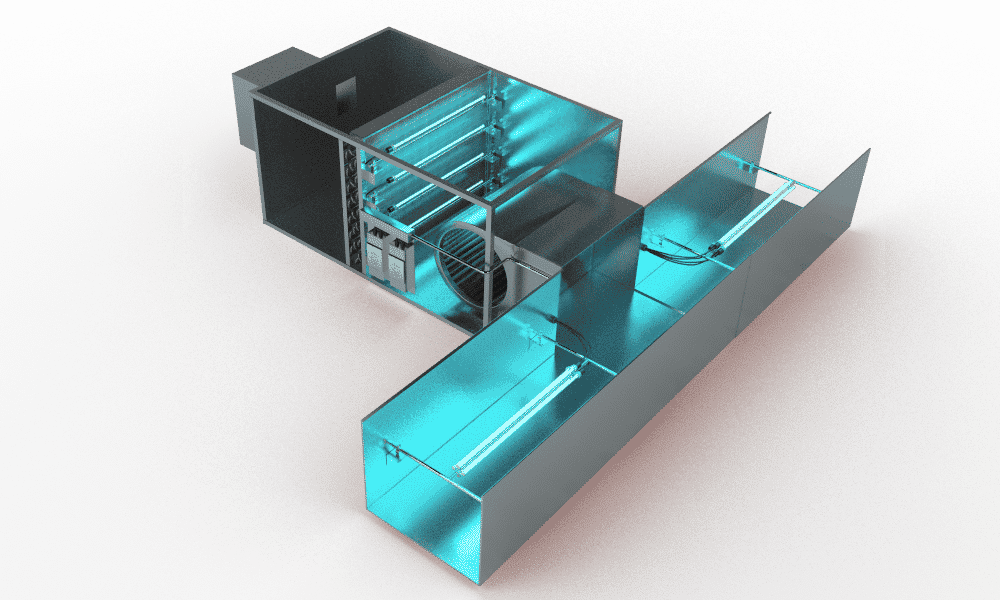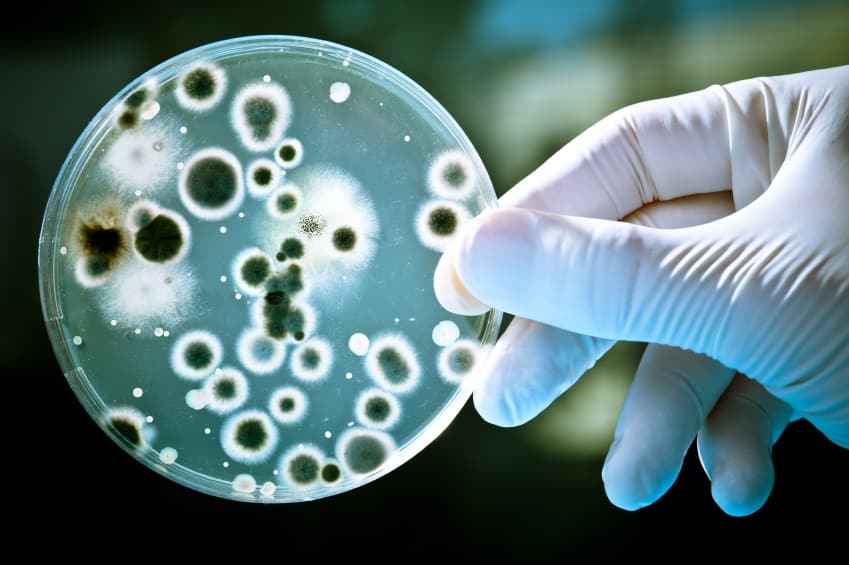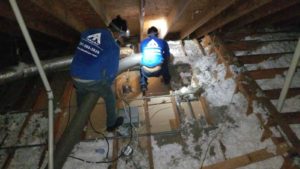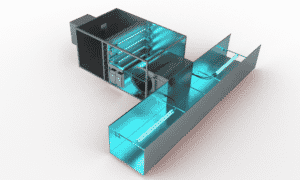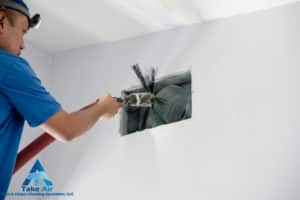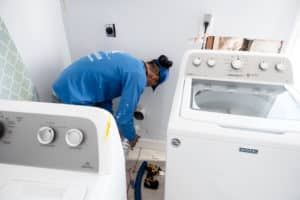HVAC UV Lights for AC Systems – Do They Work?
If you’ve been considering installing an AC UV Light Installation in your home’s air conditioning system, you need certified HVAC contractors like Take Air to do the job. However, the decision isn’t as simple as it might seem. In addition to the obvious benefits of clean air, there are a few things you should know about before making your final decision.
In this post, we’ll look at what UV lights are and how they work. Do HVAC UV lights kill viruses? What about bacteria and mold? Are they worth the money? By the end of this post, you should have a good idea of whether or not installing a UV light in your AC system is right for you.
Spoiler alert: most people find that HVAC UV lights are a great way to improve their indoor air quality! Keep reading to learn more.
Let’s get started!
What are UV lights, and what do they do for AC systems?
UV lights are, as the name suggests, lights that emit ultraviolet (UV) radiation. This type of radiation is invisible to the human eye but can be harmful to living things, including bacteria and viruses.
UV lights work by emitting ultraviolet radiation, which is invisible to the human eye but can be harmful to living things, including bacteria and viruses. When UV light comes into contact with these microorganisms, it damages their DNA or RNA, rendering them unable to reproduce. This effectively kills them and prevents them from causing illness.
These lights are often used in hospitals and other settings where sterile conditions are important, as they can help to reduce the spread of infection.
What’s the Main Benefit of Installing UV Lights in My AC System?
Installing a UV light in your home’s HVAC system can help to improve air quality by reducing the amount of harmful microorganisms in the air. This can be especially beneficial for people with allergies or asthma, as it can help to reduce their exposure to triggering agents. Often, UV lights are used in conjunction with other air purification methods, such as HEPA filters, for the best results.
This is because UV light alone cannot remove larger particles, such as dust or pollen, from the air. However, combining them with other methods can help to create a well-rounded air purification system that can improve indoor air quality and help you breathe more easily.
Are there any potential drawbacks to using UV lights in your HVAC system?
Installing a UV light in your HVAC system can slightly increase your energy consumption, as the lights need to be on in order to work. However, the increase in energy consumption is typically minimal and more than offset by the savings in heating and cooling costs that can come from having a more efficient system.
Furthermore, UV lights typically have a long lifespan and require little maintenance, making them a very low-cost way to improve your home’s air quality. However, it is essential to note that UV lights should be replaced every few years to ensure they are working properly.
Types of HVAC UV Lights
Two main types of UV lights can be used in HVAC systems:
Coil Sterilization: Coil sterilization UV lights are installed in the ductwork of your HVAC system and work to sterilize the air as it passes through the coils. These lights are most effective at reducing mold growth and can help reduce the spread of airborne viruses.
Air Sterilization: Air sterilization UV lights are installed in the air handler of your HVAC system and work to sterilize the air as it circulates through the unit. These lights are most effective at reducing bacteria and viruses in the air and can also help to reduce mold growth.
No matter which type of UV light you choose, you can be confident that it will help to improve your home’s air quality by reducing the amount of harmful microorganisms in the air.
Studies Prove the Effectiveness of UV Lights in HVAC Systems
Numerous studies have been conducted on the effectiveness of UV lights in HVAC systems, with the vast majority finding that UV lights are effective at reducing the growth of mold, bacteria, and viruses.
A study by Duke University Medical Center found that UV lights effectively reduce drug-related bacteria in hospital rooms. The bacteria were reduced by more than 97% in 50 rooms with UV lights installed in the HVAC system.
What is the Maintainance of UV Lights?
An average UV stick light bulb lasts anywhere between 9,000 and 12,000 hours. This means that you will likely only need to replace your UV light once every one to two years.
When it comes time to replace your UV light, it is important to follow the manufacturer’s instructions to ensure that you do so properly. This will help to ensure that your new light is just as effective as the old one.
Indoor Air Quality Priorities
Though UV lights are effective at reducing mold, bacteria, and viruses, but it doesn’t mean you shouldn’t do the indoor air quality priorities like:
- Regularly cleaning and dusting your home
- Changing your air filter regularly
- Opening windows to let fresh air in
- Avoiding the use of harsh chemicals
- Sealing off any cracks or leaks in your home’s envelope
- Ensuring air-tightness in your ductwork
- Adding an air purifier to your home
- Improving ventilation in your home
Now, let’s move to the next section and discuss the benefits of UV lights in your HVAC system.
The Benefits of Using UV Lights in Your HVAC System
- Reduced mold growth: UV lights help reduce mold growth by killing mold spores circulating in the air.
- Reduced bacteria and viruses: UV lights also help to reduce the growth of bacteria and viruses by killing them as they circulate through the system.
- Improved air quality: The reduced growth of mold, bacteria, and viruses leads to improved air quality in your home.
- Lower heating and cooling costs: UV lights can also help lower your heating and cooling costs by reducing the energy needed to circulate the air in your home.
Disadvantages of UV Lights
Though there are many benefits to using UV lights in your HVAC system, there are also a few disadvantages to consider:
- UV lights can be a bit pricey, though the cost will vary depending on the type and size of light you choose.
- You need to install air sterilization UV lights if you want to purify flowing air in your home.
- Your drain pan can become a breeding ground for mold and mildew if it is not maintained correctly.
- Your flex ductwork will not last as long as your rigid ductwork if it is not properly installed and maintained.
Are they worth the investment for homeowners or business owners concerned about indoor air quality?
Yes, UV lights are definitely worth the investment for homeowners or business owners concerned about indoor air quality. The benefits of UV lights in your HVAC system far outweigh the disadvantages. You’ll enjoy improved air quality, lower heating and cooling costs, and a reduction in mold, bacteria, and viruses.
Conclusion with Call to Action to sell services of Air Take
If you’re concerned about the air quality in your home or business, investing in UV lights for your HVAC system is a great way to improve it. At Take Air, we can help you choose the right UV lights for your needs and install them properly. Our team of experts is here to answer any questions and help you get the most out of your investment. Contact us today to learn more.
(281) 568-3828

